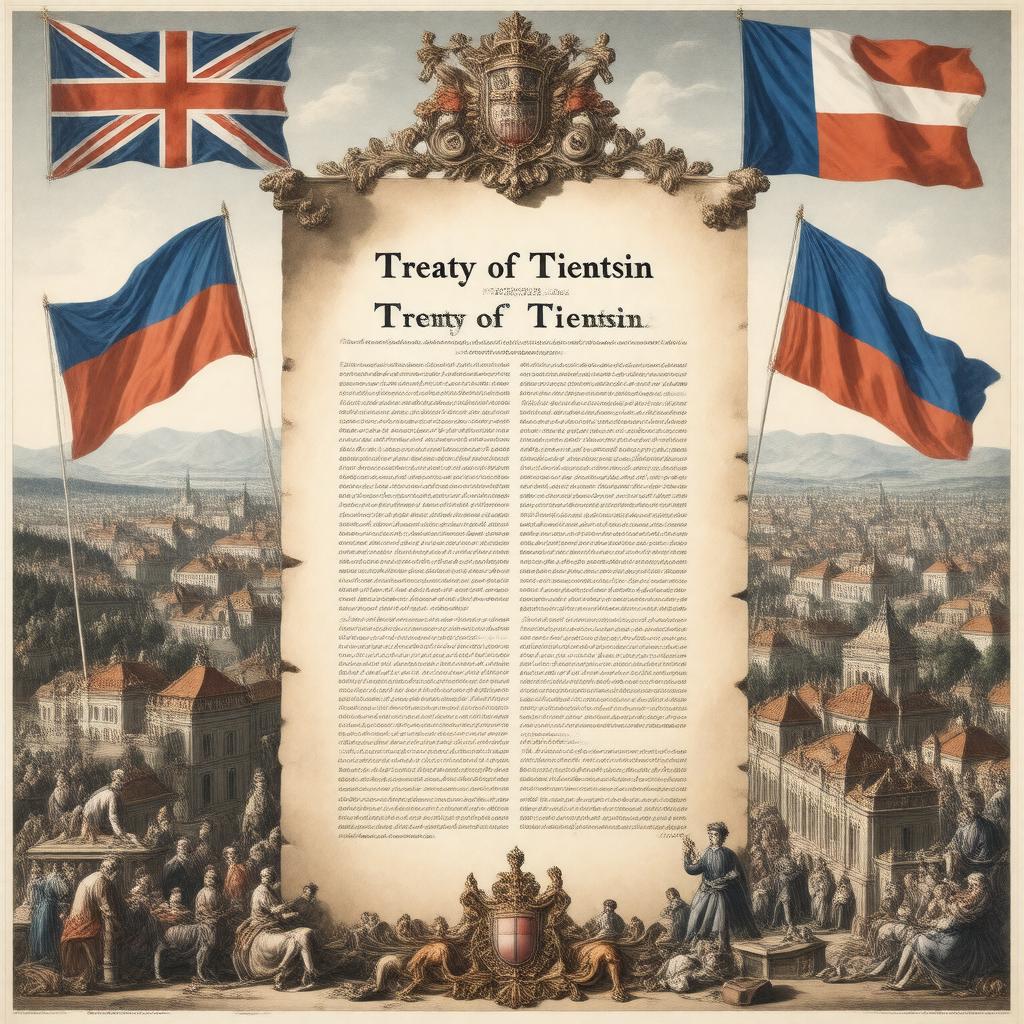
AI-created image
Statements (30)
| Predicate | Object |
|---|---|
| gptkbp:instanceOf |
gptkb:treaty
|
| gptkbp:abolished |
character for 'barbarian' in official documents
|
| gptkbp:allowedForeignLegations |
gptkb:Beijing
|
| gptkbp:awardedBy |
freedom of movement for foreigners
|
| gptkbp:category |
gptkb:Unequal_treaties
1858 in China 1858 treaties |
| gptkbp:imposedIndemnityOn |
gptkb:Qing_dynasty
|
| gptkbp:language |
gptkb:Chinese
gptkb:French gptkb:Russian English |
| gptkbp:legalized |
gptkb:missionary
|
| gptkbp:openedPorts |
gptkb:Nanjing
gptkb:Taiwan gptkb:Tientsin gptkb:Zhenjiang gptkb:Niuzhuang |
| gptkbp:ratifiedBy |
gptkb:Convention_of_Peking
|
| gptkbp:relatedTo |
gptkb:Second_Opium_War
|
| gptkbp:signedBy |
gptkb:France
gptkb:Russia gptkb:United_Kingdom gptkb:United_States gptkb:Tientsin gptkb:Qing_dynasty 1858 |
| gptkbp:bfsParent |
gptkb:Second_Opium_War
|
| gptkbp:bfsLayer |
4
|
| http://www.w3.org/2000/01/rdf-schema#label |
Treaty of Tientsin
|